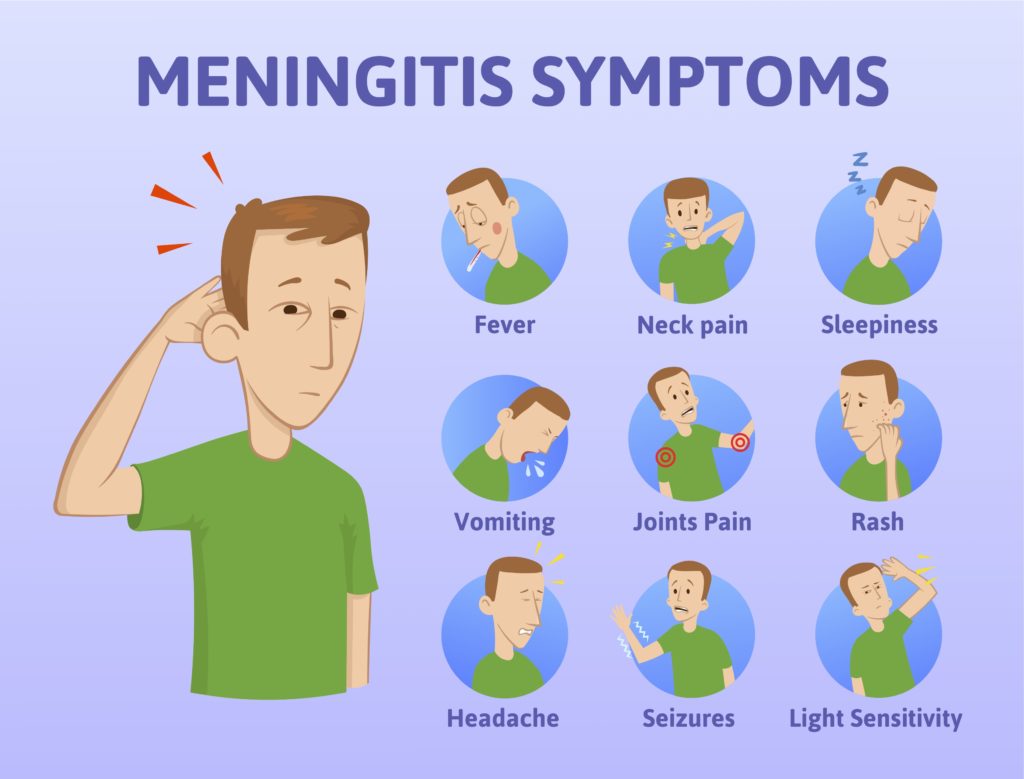Meningitis can be a serious condition if not treated quickly.
Meningitis is an infection of the protective membranes that surround the brain and spinal cord. Meningitis can cause septicaemia (life-threatening blood poisoning) and can result in permanent damage to the brain or nerves. It can affect anyone but is most common is babies, children, teenagers and young adults and in those with weakened immune systems.
Meningitis can be caused by a bacterial or viral infection. Bacterial meningitis is rare but causes a more serious infection than viral meningitis. Every year around 3,200 cases of bacterial meningitis occur in the UK.
How is it spread?
Meningitis can be spread by sneezing, coughing, kissing and sharing utensils, cutlery and toothbrushes. It is usually spread by people who are carriers of the viruses or bacteria but are not unwell themselves.
What are the symptoms?
Symptoms can develop suddenly, so it’s important to know what to look out for. Not all symptoms occur, and they may develop in any order.
- High temperature (38°degrees or above)
- Vomiting
- Headache
- Rash that does not fade when a glass is rolled over it
- Stiff neck
- Drowsiness or confusion
- Seizures
- Dislike of bright lights

When should you seek medical help?
If you suspect that you or your child has any symptoms of meningitis, it’s important to seek immediate medical attention. You should not wait until a rash develops.
Meningitis Research Foundation have a useful factsheet on ‘red flag’ symptoms that require immediate medical attention.
How can you protect against meningitis?
Vaccinations offered as part of the NHS Vaccination Schedule protect against different types of meningitis infections. If you are unsure if your child’s vaccinations are up-to-date you should speak to your GP.
The meningitis ACWY vaccine is now offered to teenagers and students going to university for the first time.
See NHS choices for information on the vaccines offered to protect against meningitis.
If you are concerned about meningitis you should seek immediate medical attention – phone 999 or attend A&E immediately. Most people make a full recovery from meningitis, but it can sometimes cause serious long-term problems and can be life threatening – so that is why it is important to seek immediate medical attention if you suspect meningitis.
